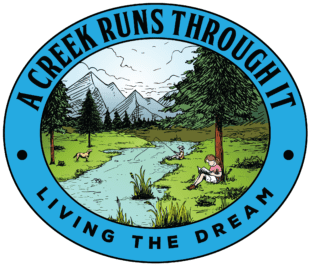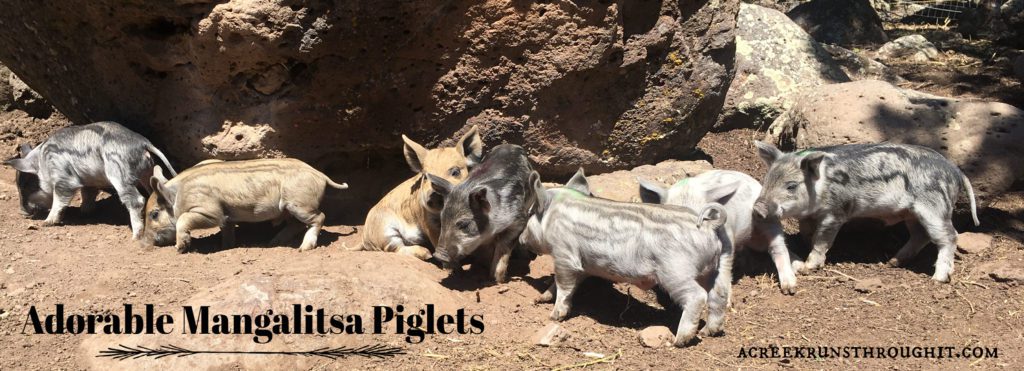**This post contains affiliate links, which means I receive a small commission, at no extra cost to you, if you make a purchase using this link. Thank you**
We hear this comment all the time… “Those pigs look like sheep!”
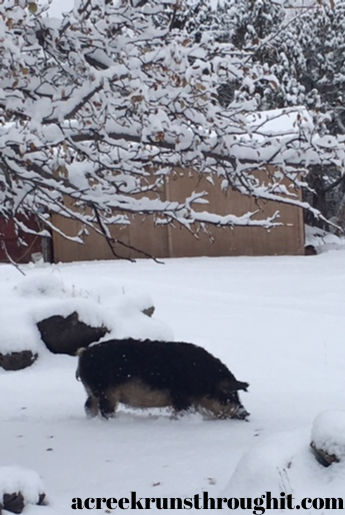
The Mangalitsa pig has curly hair that we typically describe as similar to a poodle. They are a Hungarian heritage breed known for their docile nature and delicious pork. Since moving to Colorado our
The meat of the Mangalitsa is prized by chefs for its marbling and rich flavor. We had read this but we still thought- really? Will we really be able to taste a difference? Will our children be able to taste a difference?
YES!! Yes we can!
So if you want delicious, home-grown pork perhaps the Mangalitsa will work for you. Here are some pros and cons that our family has encountered with raising Mangalitsa.
PROS of the Mangalitsa Pig
- Delicious pork- Mangalitsa meat is flavorful and high in Omega-3 fatty acids!
- Hardy and adaptable in most climates.
- Calm, docile temperament. This makes
them easy to handle compared to many other breeds. As I said above, our 12-year-old raises our Mangalitsa’s. They even let her brush them! While they certainly don’t have to be groomed, our pigs actually enjoy it! - Foragers. This is a pro and con- if you have an area that needs to be torn up for replanting this is the pig for you! If you need to keep the pigs in a pen near your house, just know that it will be torn up.
- Ideal for pasture-raised pork. We supplemented their grass with barley.
- Mangalitsa
are adorable as piglets and are found in multiple colors. - Minimal fencing- our pigs stay in an area with just a simple, single strand of electric fencing.
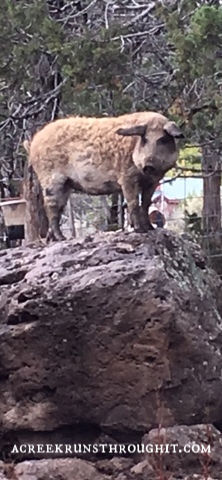
CONS of the Mangalitsa Pig
- They are rooters. Wherever you keep them expect the area to be torn up. This can be a pro if you need the area turned over/cleaned out.
- Slow growing- this is not a pig for mass market production. They are typically slaughtered at 15 months of age. This means it takes longer to grow them out but we think it’s worth it! However, if you are going to sell any shares of your pigs the price per pound will need to be more to cover your costs.
- They can be hard to find. While growing in popularity, the Mangalitsa pig is still rare in the U.S. Expect to do some searching to find well bred Mangalitsa and probably some drive time to get them.
For us, the pros outweigh the cons. Just the taste of the meat alone makes the cons insignificant for us! Even our
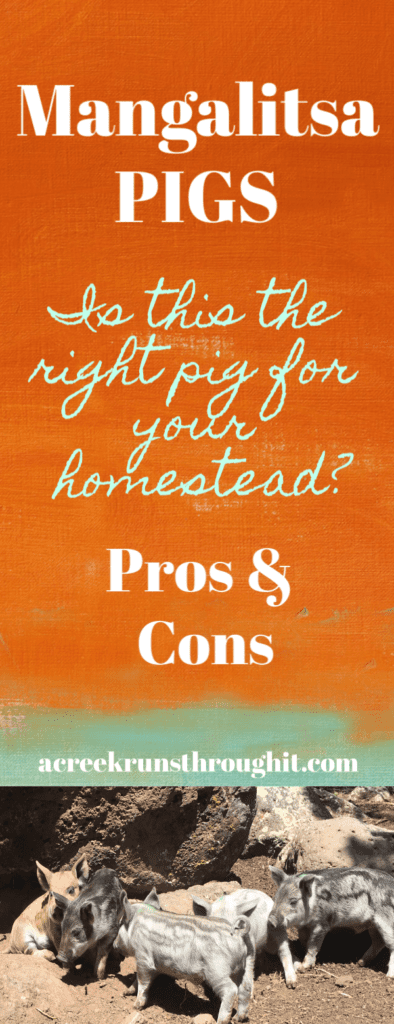
Our favorite Mangalitsa links:
- Jacob’s Heritage Farm- great info about Mangalitsa here and about Mangalitsa pork pricing/cuts here.
- Royal Mangalitsa- Beautiful Mangalitsa pig photos and info here.
General Pig Raising Information:
- Insteading.com article on How to Raise Pigs
Books about Raising Pigs and Homesteading:
Our daughter especially loves these books and recommends them to kids (and adults!) wanting to learn about raising pigs and livestock in general.
The Encyclopedia of Country Living
Storey’s Guide to Raising Pigs
The Backyard Homestead Guide to Raising Farm Animals
Cherry Hill’s Horse Care for Kids
The Complete Guide to Raising Pigs
Please comment below with any questions! Do you have a particular pig breed that you enjoy raising?
Also, please remember that no matter what breed you pick, the best way to ensure happy, healthy pigs is to learn as much as you can about that particular breed and their requirements.
Happy Pig Raising!
~Melissa
